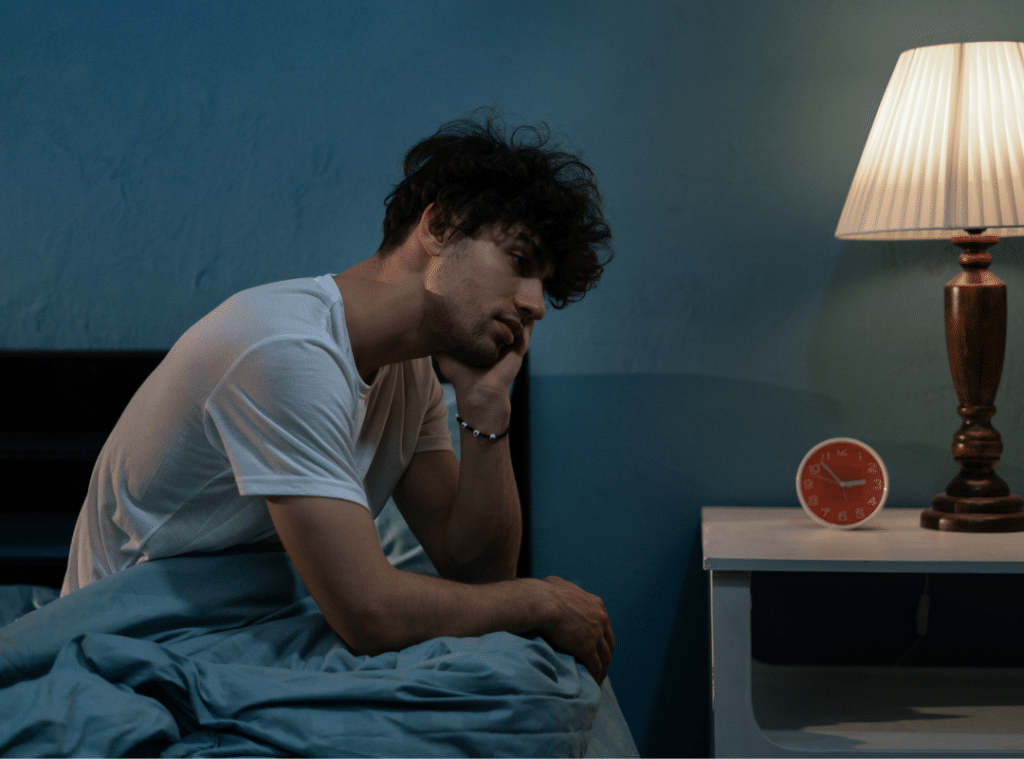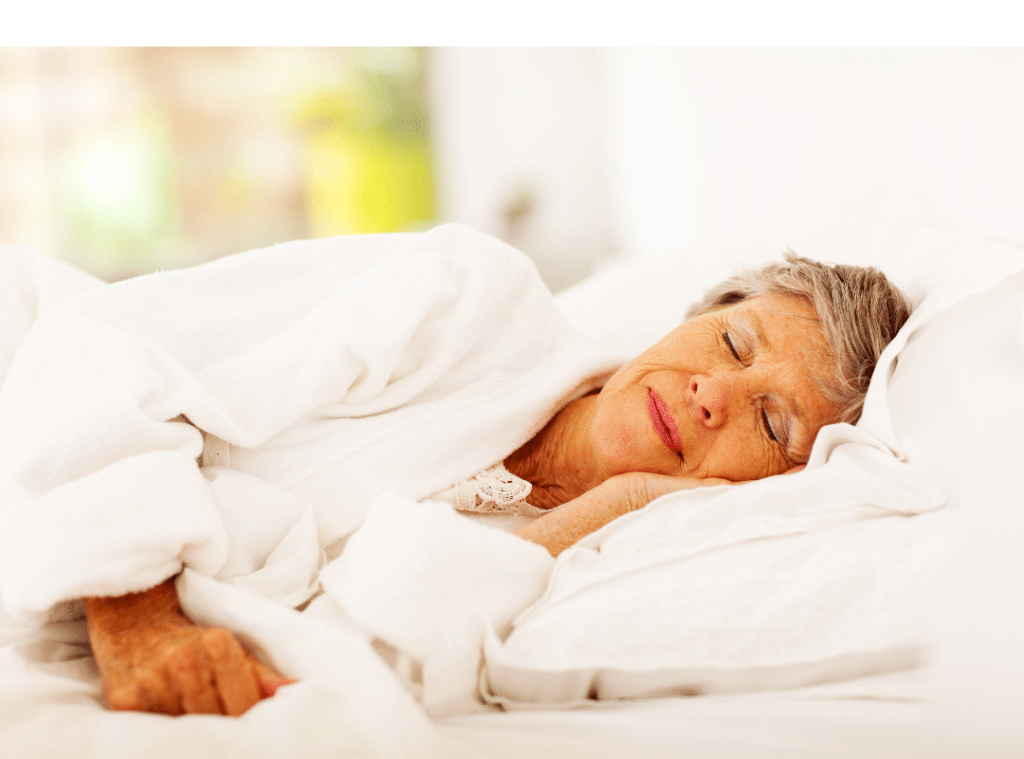Is Elderly Sleeping Too Much? Causes and Solutions
If you’re noticing sudden excessive sleepiness in elderly loved ones, it could be linked to age-related changes, medical conditions like depression or sleep apnea, or medications such as sedatives and antidepressants. Poor sleep quality can further complicate health issues, leading to fatigue and increased risk of illnesses. At Westmont of Escondido, we recommend creating a sleep-friendly environment, establishing a routine, and managing stress as effective solutions. Understanding these factors can help improve sleep health, and exploring more options may benefit your loved one.
Understanding Sleep Patterns in the Elderly
Understanding your sleep patterns becomes essential as you age since they often change considerably. Your circadian rhythms, which regulate your sleep-wake cycle, may shift, leading to altered sleep quality. You might find it harder to fall or stay asleep, resulting in the elderly falling asleep while sitting or feeling fatigued during the day. This can affect not just your energy but also your overall well-being. It’s important to recognize these changes and their impacts on daily life. By monitoring your sleep habits and consulting healthcare professionals, you can identify strategies to enhance sleep quality. Simple adjustments to your environment or routine can remarkably improve how restorative your sleep is, ultimately helping you serve others with renewed vitality and purpose. Additionally, as research indicates a decline of approximately 27 minutes of sleep per night per decade, it’s crucial to adapt your sleep practices accordingly.
Common Medical Conditions Linked to Excessive Sleep
Excessive sleep can often be a sign of underlying medical conditions that require attention. For instance, sleep apnea can disrupt your rest, leading to overwhelming fatigue during the day. Additionally, depression may manifest as prolonged sleep, making it essential to recognize these symptoms for better overall health. Seeking help from specialized geriatric clinics can ensure seniors receive appropriate evaluations and support for their mental health needs.
Sleep Apnea Effects
While it’s easy to overlook the significance of sleep quality amidst the demands of daily life, sleep apnea can lead to serious health issues, particularly in the elderly. This condition often results in fragmented sleep, which can exacerbate existing health problems like hypertension, diabetes, and heart disease. You might notice increased daytime fatigue, irritability, or even cognitive decline, all of which can diminish the quality of life for both you and your loved ones. Recognizing the effects of sleep apnea is essential, as it often goes undiagnosed. Fortunately, several treatment options exist, including lifestyle changes, CPAP therapy, or oral appliances. Additionally, the risk of pneumonia in seniors may increase with poor sleep quality, further complicating health outcomes. Seeking medical advice can help manage symptoms and improve overall well-being, allowing you to enjoy more restful nights and vibrant days.
Depression and Fatigue
Sleep apnea isn’t the only condition that can disrupt your rest and lead to excessive sleep. Depression is a common culprit, often accompanied by fatigue symptoms that can leave you feeling drained and unmotivated. Recognizing these issues is essential for effective fatigue management.
Consider these factors that may contribute to your situation:
- Persistent feelings of sadness or hopelessness
- Lack of interest in activities you once enjoyed
- Changes in appetite or weight
- Difficulty concentrating or making decisions
If you notice these depression symptoms, seeking help is essential. A healthcare professional can guide you in managing depression and fatigue, improving your overall quality of life. Addressing these issues is a significant step toward better rest and well-being. Additionally, understanding the link between depression and memory loss can provide further insight into how these symptoms might affect your daily functioning.
Medications That May Contribute to Increased Sleep
Many common medications can cause increased sleepiness in the elderly. If you’re taking sedatives, antihistamines, or certain antidepressants, you might experience more fatigue than usual as a side effect. Discussing potential alternatives with your healthcare provider to optimize your treatment and overall well-being is essential.
Common Medications Affecting Sleep
Certain medications can significantly impact your sleep patterns, increasing daytime drowsiness. If you or a loved one is taking multiple medications, it is crucial to be aware of potential medication interactions that could exacerbate sleepiness. Some common medications that may contribute to increased sleep include:
- Benzodiazepines: Often prescribed for anxiety or insomnia, these sleep aids can lead to prolonged drowsiness.
- Antidepressants: Some may cause sedation as a side effect.
- Antihistamines: Frequently used for allergies, these can induce significant sleepiness.
- Opioids: Pain relief medications that can impair alertness.
If you’re concerned about how these medications affect sleep, consult your healthcare provider for guidance and possible alternatives.
Alternatives to Consider
While some medications are known to induce drowsiness, some alternatives may help manage conditions without considerably impacting sleep patterns. You might consider discussing non-sedating options with your healthcare provider, such as certain antidepressants or anxiety medications that are less likely to disrupt your sleep. Optimizing your sleep environment can create a more restful atmosphere, supporting better sleep quality. Incorporating consistent daily routines that include relaxation techniques, like deep breathing or gentle stretching, can also contribute positively to your sleep. Regular physical activity during the day may enhance your overall sleep quality. Always consult a healthcare professional before making any changes, ensuring you tailor solutions to your unique needs.
Lifestyle Factors Affecting Sleep Duration
As you navigate the complexities of aging, lifestyle factors can considerably influence your sleep duration. Your sleep environment and daily routines are essential to how well you rest. You can enhance your sleep quality and overall well-being by making conscious adjustments.
Consider these factors:
- Sleep environment: Ensure your bedroom is dark, quiet, and calm to promote restful sleep.
- Daily routines: Establish regular sleep and wake times to regulate your body’s internal clock.
- Physical activity: Engage in moderate exercise during the day to help improve sleep quality.
- Dietary choices: Limit caffeine and heavy meals close to bedtime for better rest.
Adopting these practices can improve sleep patterns, helping you feel refreshed and engaged daily.

The Impact of Mental Health on Sleep
Mental health greatly influences sleep patterns, impacting the quality and duration of rest. Conditions like anxiety disorders can lead to heightened stress and restless nights, while cognitive decline often disrupts sleep architecture. Understanding these connections helps you recognize the importance of addressing mental health for better sleep.
| Mental Health Condition | Sleep Impact | Possible Solutions |
| Anxiety Disorders | Difficulty falling asleep | Mindfulness, therapy |
| Depression | Oversleeping or insomnia | Medication, counseling |
| Cognitive Decline | Fragmented sleep cycles | Routine sleep environment |
| Stress | Nightmares and restlessness | Relaxation techniques |
Prioritizing mental well-being can help improve your sleep, enhancing overall health and quality of life.
Tips for Promoting Healthy Sleep Habits in Seniors
Creating an environment conducive to rest is essential to foster healthy sleep habits in seniors. Here are some practical tips to enhance their sleep quality:
- Establish a Consistent Sleep Schedule: Encourage going to bed and waking up at the same time daily.
- Optimize the Sleep Environment: Keep the bedroom dark, quiet, and calm to promote restful sleep.
- Introduce Relaxation Techniques: Encourage deep breathing, gentle yoga, or meditation before bedtime.
- Limit Screen Time: Reduce exposure to screens at least an hour before bedtime, as blue light can disrupt sleep.
Sleep is a significant thread that can fray if not nurtured in the intricate tapestry of aging. If you or a loved one find excessive sleep a concern, exploring underlying causes—medical, medication-related, or lifestyle choices is essential. At Westmont of Escondido, we are here to help you address these factors and foster healthy sleep habits, allowing you to weave a more restful and balanced life. Remember, quality sleep is as critical to well-being as the air we breathe, so take proactive steps toward rejuvenation. For more information, please call us at 760-737-5110.
How Do The Costs Of Moving Into A Quality Senior Care Community Compare With The Costs Of Staying At Home?Compare The Costs of Senior Living vs Staying at Home
Frequently Asked Questions
What does it mean if an elderly person sleeps all the time?
Excessive sleep in elderly individuals can be due to several factors, including aging-related changes, underlying medical conditions, or medication side effects. It could indicate issues such as depression, dementia, or chronic illnesses like heart disease or diabetes. Poor sleep quality at night may also lead to increased daytime drowsiness. If an elderly person sleeps significantly more than usual, it may be best to consult a doctor to rule out serious health concerns.
Is it normal for a 90-year-old to sleep a lot?
Yes, it is common for older adults, especially those around 90, to sleep more due to changes in their sleep patterns and energy levels. As people age, they often experience lighter and more fragmented sleep, leading to increased daytime napping. However, excessive sleep could also indicate an underlying health issue such as cognitive decline, depression, or an undiagnosed medical condition. A medical evaluation may be necessary if their sleep habits change or interfere with daily activities.
Should I let my elderly parent sleep all day?
While rest is essential, excessive sleep throughout the day can reduce engagement in social and physical activities, vital for overall well-being. If your elderly parent sleeps excessively, encourage a daily routine that includes light exercise, social interactions, and engaging activities. It’s also essential to assess whether their sleepiness is due to an underlying medical issue or medication side effects. If their excessive sleep persists or affects their quality of life, consulting a healthcare professional is advisable.
What is the cause of excessive sleepiness?
Excessive sleepiness in older adults can result from various factors, including poor nighttime sleep, medication side effects, or underlying health conditions such as sleep apnea, depression, or dementia. Chronic illnesses like diabetes, heart disease, and thyroid disorders can also contribute to fatigue. Dehydration, nutritional deficiencies, and lack of physical activity may further impact energy levels. Identifying and addressing the root cause through medical evaluation and lifestyle adjustments can help improve wakefulness and overall well-being.









